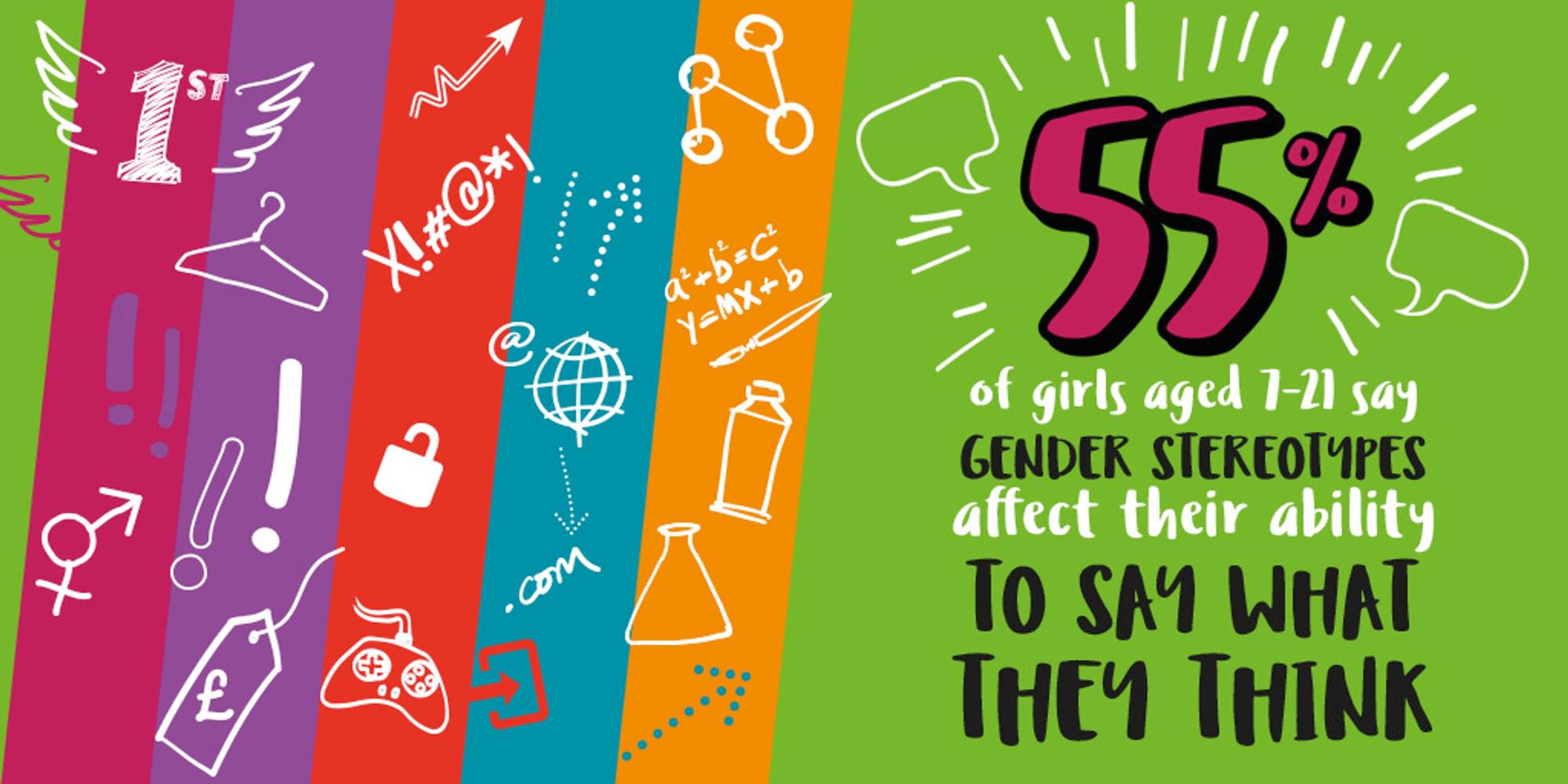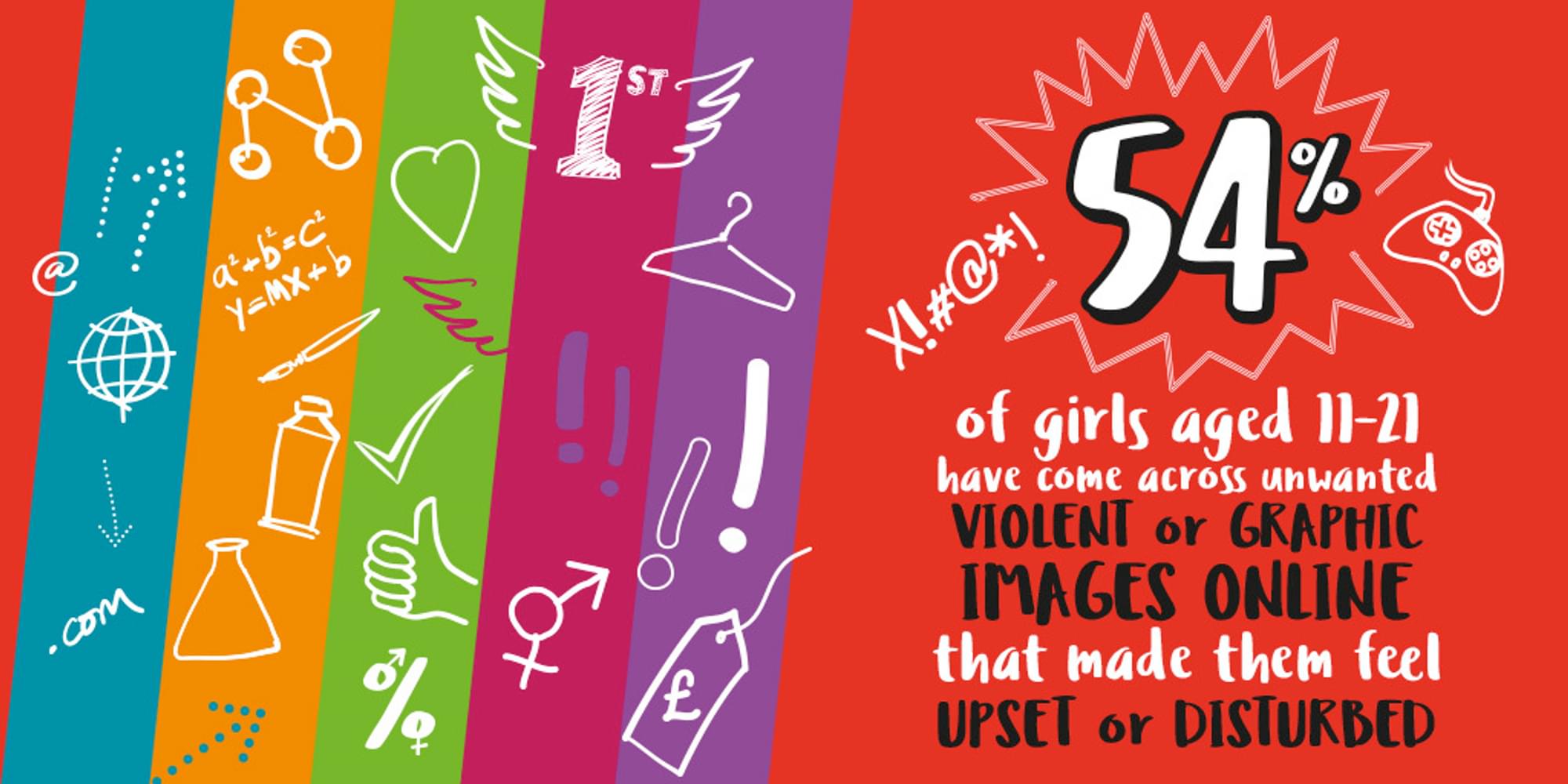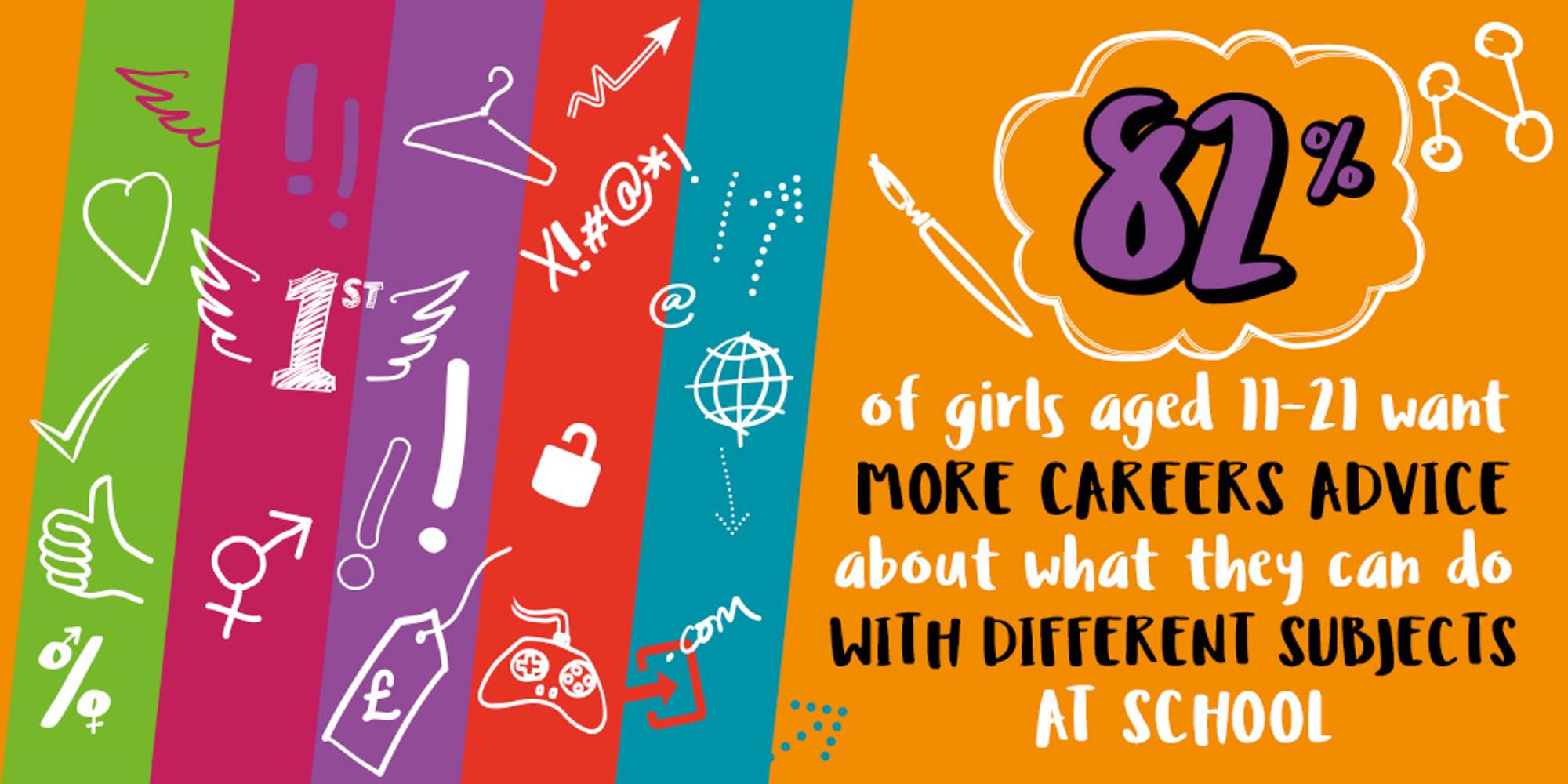Faith Argeroplos explores the findings of the 2017 Girls' Attitudes Survey, highlighting themes such as gender stereotypes, safety online, and freedom of opportunity.
The world is a difficult place for teenage girls. 1,900 girls across the UK spoke out in the yearly Girls’ Attitudes Survey from the Girl Guides, revealing how the little normalities of our culture and media add up, attacking their identity, altering their dreams and impacting their lives. Yet, these girls won’t let that stop them. Here is a summary of the research, and what it could mean for our youth work:
1. Gender stereotypes and the problems they create
Stereotypes flood our world, and we don’t always feel the brunt of their impact on girls. We know that adolescent years are formative in finding your voice and learning how to use it. One challenging finding from the research was that these stereotypes prevented over half of girls from expressing their ideas and thoughts. Gender stereotypes directly prohibit confidence and growth in identity. 37% of girls between the ages of 11 and 21 say that their confidence would be better if there were no gender stereotypes.

So who are the culprits for using gender stereotypes? 65% of girls 11-21 say they often hear gender stereotypes used on social media, closely followed by TV, magazines, and newspapers. For me it is easy to point the finger at media in general for the impact of gender stereotypes because social media is widely accepted as the problem. My challenge today is to bring this issue closer to home. If I put my life in front of a mirror, I wonder where in my own life and work with young people I have subtly promoted gender stereotypes, perhaps without realising. We are now made aware of the effects of gender stereotypes on the behaviour and voice of our young people. We need to take responsibility for our actions and then be part of the change.
We need to question how we’ve been affected and how we may have submitted to gender stereotyping. We need to target intentional areas where we can relieve both girls and boys from gender stereotyping. We need to raise discussions around gender stereotyping in our leadership and ministry teams. (Read the full report here and look on page 8 and 9 to read where girls behaviours change due to gender stereotyping).
2. A not so safe place
Safety is key for young people, and these girls speak up about the risks they face on the internet, and in school. Half of girls are stumbling across content online that is violent and graphic. Girls between the ages of 11 and 16 say that they want age appropriate adverts. 26% of 13 to 21 year-olds have come across pornography by accident. In addition to this, 16% of girls between 18 and 21 have felt pressured to send nude pictures, while 25% of girls of the same age think sexting is a normal part of a relationship. In 2017, 64% girls have experienced some form of sexual harassment at school compared to 2014’s 59%. Sexual harassment has become more common, and we need to fight the “norm”.

We need to ask ourselves how can we join in on supporting girls in fighting for safety online. If safety is not found online, then we must create a safe place for real conversations about the pressures they face online (check out Youthscape’s new resource ‘Is it okay?’ to help with this). Another way we can support this fight is in our conversations with other adults who work with young people such as teachers, other youth workers, and most importantly parents. Only 47% of girls think their parents understand the pressures they face online. We have the ability to raise that percentage, and help parents to get alongside their girls. It is through our continued fight that these girls will find courage to stand against what the world tells them is normal.
3. Breaking into new places
Girls want to achieve and be leaders in the world around them. Girls are feeling the effect of gender stereotypes around certain subjects, feeling that English and Arts are more for girls, while STEM is more for boys. They find it hard not to be labeled when breaking from this mold of expectations. We need women in all areas of life as role models for girls. 43% of girls say that having a female Prime Minister makes them feel more inspired to be a leader.

As youth workers we are able inspire, encourage, and build up our girls to break into new areas of work. First, we lead by example, and open all areas of leadership for girls in our youth ministries. Being a woman youth worker myself, this speaks to breaking the stereotypes of women in ministry. We build them up as disciples of Christ who lead and bring the Word of God to others boldly. This could also be done through study with girls through the empowerment Jesus brings to women in the Bible. Jesus broke the cultural norms for women during His ministry, and we are meant to do the same.
There is lots more in the Girls Attitude survey that is relevant to us as youth workers and applicable to our own ministries - check out the rest of the survey here. Join in with the voices of these girls to fight the norms of our culture.




